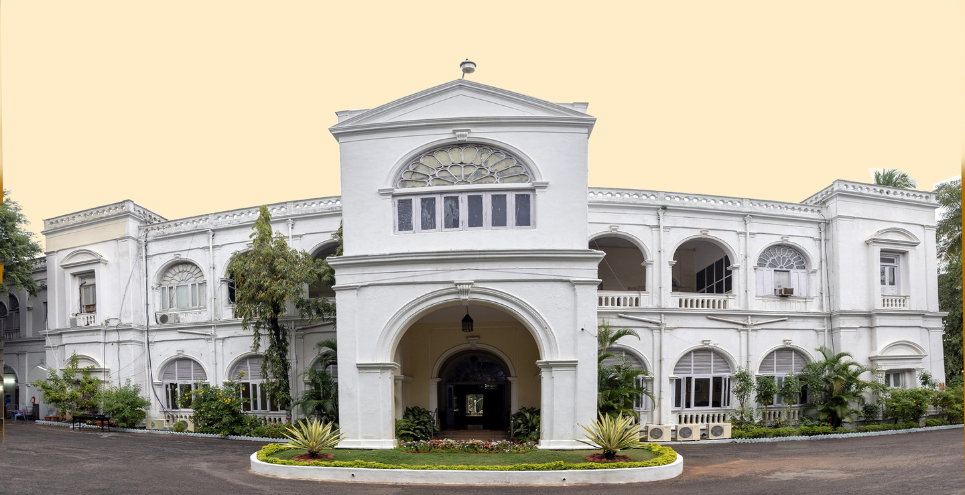Leading Strategic Innovation – Programme Overview
Energy efficiency is critical to climate action, cost reduction, and sustainability. Recognising its importance, the Government of India has introduced key initiatives such as the Energy Conservation Act (2001) and the National Action Plan on Climate Change (NAPCC). These policies position energy efficiency as a vital strategy for reducing fossil fuel dependence and optimising energy use across industries, buildings, and infrastructure. However, securing adequate financing remains a significant challenge in scaling up energy efficiency projects.
This programme equips professionals with the knowledge and skills to develop, assess, and finance energy efficiency projects effectively. Participants will gain insights into financing mechanisms, risk assessment, and policy frameworks that support energy efficiency investments. The programme will cover key financial instruments, including ESCOs and other energy efficiency (EE) financing models, through interactive sessions, case studies, and financial modelling exercises.
By bridging the gap between technical expertise and financial viability, this programme empowers professionals to drive investment in energy efficiency and contribute to national and global sustainability goals.
OBJECTIVES
- Understand financial mechanisms and investment strategies for energy efficiency projects.
- Assess project viability using technical and financial appraisal techniques.
- Identify financing models, including ESCOs and other EE financing structures, for project implementation.
- Develop risk management strategies for energy efficiency investments.
- Analyse real-world case studies to apply best practices in energy efficiency financing.
- Strengthen leadership and collaboration skills to drive energy efficiency initiatives.
CONTENT
Day I: Introduction to Energy Efficiency & Financing Needs
- Overview of global and national energy efficiency trends
- Policy frameworks and regulatory considerations
- Importance of financing in achieving energy efficiency goals
Day II: Technical & Financial Fundamentals
- Developing leadership skills to foster collaboration and manage diversity.
- Engaging in interactive and participative learning through Outbound Exercises and business simulations.
Day III: Case Studies & Impact Assessment
- Evaluation of real-world energy efficiency projects
- Financial modelling and impact assessment techniques
- Application of successful financing strategies for project sustainability
METHODOLOGY
The programme adopts an interactive and practice-oriented approach, including:
- Expert-led lectures on financing models and policy frameworks
- Case study discussions showcasing successful financing strategies
- Hands-on exercises in financial modelling, risk assessment, and project planning
- Group discussions and presentations to foster peer learning and collaboration.
FACULTY PROFILE
The faculty comprises experienced professionals and industry experts specialising in energy efficiency financing, policy frameworks, and project implementation. They bring extensive academic, government, and private-sector finance knowledge to ensure a comprehensive learning experience.
PARTICIPANT PROFILE
This programme is designed for professionals financing and implementing energy efficiency projects, including government officials, designated consumers under the Energy Conservation Act, energy consultants, practising engineers, and financial institutions. It also benefits stakeholders interested in understanding financing mechanisms for energy efficiency initiatives. Participants will gain valuable insights and practical tools to enhance their ability to drive energy efficiency investments and contribute to sustainable development goals. Organisational sponsorship is essential
VENUE
The programme is fully residential and the participants will be accommodated in air-conditioned single occupancy rooms. The college does not provide accommodation for the family. The college is Wi-Fi enabled in a comprehensive way.
Duration
The programme duration is 3 days starting from September 10 - 12, 2025. The participants are expected to arrive a day before commencement and may leave after the conclusion of the programme.
PROGRAMME FEE
Residential Fee: Rs. 43,700/- (US $683 for foreigners) plus GST as applicable (presently 18%) per participant. The fee covers tuition, board and lodging, courseware (in electronic form) and other facilities of the College including internet usage.
Non-Residential Fee: Rs. 37,700/- plus GST as applicable (presently 18%) per participant. The fee covers tuition, course ware (in electronic form) working lunch and other facilities of the College including internet usage.
A discount of 10% on the Programme fee for three or more participants from the same organisation will be given, provided the payment is credited into our Bank account before September 08, 2025.
Note: Kindly forward us the details of the Bank/ Wire transfer of the programme fee through email to: [email protected] for confirmation.
MEDICAL INSURANCE
The nominees are requested to carry with them the proof of Medical Insurance. The sponsoring agency is required to endorse the nominees' medical coverage in the event of hospitalization
LAST DATE FOR NOMINATION
Please use the prescribed/attached form. Last date for receiving nominations is August 27, 2025 Kindly contact Programmes Officer for further details (contact details are given at the end of the nomination form).
LAST DATE FOR WITHDRAWAL
September 03, 2025. Any withdrawals after this date will entail forfeiture of fee paid, if any.
ASCI ALUMNI ASSOCIATION
Participants of the College programmes will automatically become members of the ASCI alumni association.
CERTIFICATE OF PARTICIPATION
The College issues a Certificate of Participation on conclusion of the programme.

